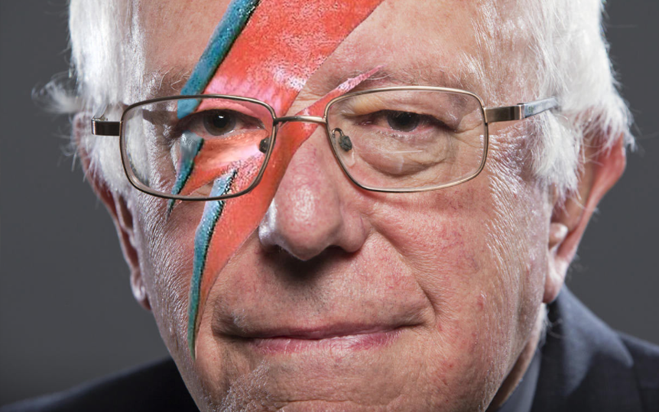
Pledged delegates mean they were awarded proportionally according to the popular vote. Super Delegates don’t vote until the convention in Philadelphia on July 26. What will happen then has been the subject of much conjecture.
Bernistas think the Democratic Party may yet come to its senses and pick a candidate who will almost certainly beat Trump instead of Clinton who is now running neck and neck with Trump in national polls and may well lose to him. Trump certainly hopes he will face Clinton and not Sanders.
Let’s do a little math. Clinton needs to win 35% of the remaining 897 delegates to reach 2026. That means Sanders, contrary to many press reports, must win 65.5%, not 80%, of the remaining delegates to reach 2026.
And he could do that, even if he loses badly to Clinton in New Jersey. If he “runs the table” in the remaining contests, as CNN’s John King recently suggested, Sanders could emerge the winner–even before the convention. With that much momentum, DNC party officials would be hard-pressed not to nominate him in Philadelphia.
Washington D.C.votes last on June 14 and it would be ironic if the Capital’s 20 delegates determines the outcome because it, like Bernie Sanders, is not really part of the political system. It has one non-voting member in the House and nobody in the US Senate. The Democratic Party primary could be that close and 51% of the population in DC is black.
As it did in the South, the remaining contests will turn on the black vote. Unfortunately for Sanders, that voting block is overwhelmingly loyal to the Democratic Party and Hillary is their standard bearer.
There are new progressive black leaders emerging but there are not enough of them to change black voters’ minds at least not before the primary is over. Jesse Jackson could. Al Sharpton could. Charles Rangel (D-NY) could. John Conyers (D-MI) could. Alas, the first two have been silent.
The other two are members of the Black Congressional Caucus and it is thoroughly enmeshed in the trickle-down incremental politics Clinton represents. The line they peddle is that they know the Clintons, they have long-standing relationships with them, and they are loved by the Clintons. So they support Hillary, not Sanders.
There was a Peter, Paul, and Mary hit in the 1960s, “I Dig Rock and Roll Music” that puts a spin on being loved and warns the listener to read between the lines of pop culture. Here is the third stanza:
“I dig Donovan in a dream-like, tripped out way
His crystal images tell you ’bout a brighter day
And when the Beatles tell you
They’ve got a word “love” to sell you
They mean exactly what they say.”
Clinton is like the Beatles. She’s selling love and consideration, not hope and challenge like Sanders. Sanders is a true child of the 1960s like Bob Dylan or Jimmy Hendrix who covered the Dylan tune “All Along the Watchtower” in 1968.
“No reason to get excited, ”
The thief – he kindly spoke,
“There are many here among us
Who feel that life is but a joke
But you and I we’ve been through that
And this is not our fate
So let us not talk falsely now
The hour’s getting late.”
As long as we’re appropriating anthems from the 1960s to explain things in 2016, let me quote Mick Jagger, who at 72, recently played in 80 degree weather for two hours in Havana on March 26. “This is a new time,” Mick Jagger told the audience of 500,000.
The Rolling Stone magazine reported that Jagger was so pumped by the crowd it seemed he could go on for another two hours.
After they belted out 16 of their hits to great applause, the Rolling Stones went back on stage for an encore. Fittingly, and as if they understood how the Sanders campaign represents a new but harrowing time in the US, they played two of their biggest hits: “You Can’t Always Get What You Want” and “I Can’t Get No Satisfaction”.
That about sums up the Sanders campaign.
— Peter White
